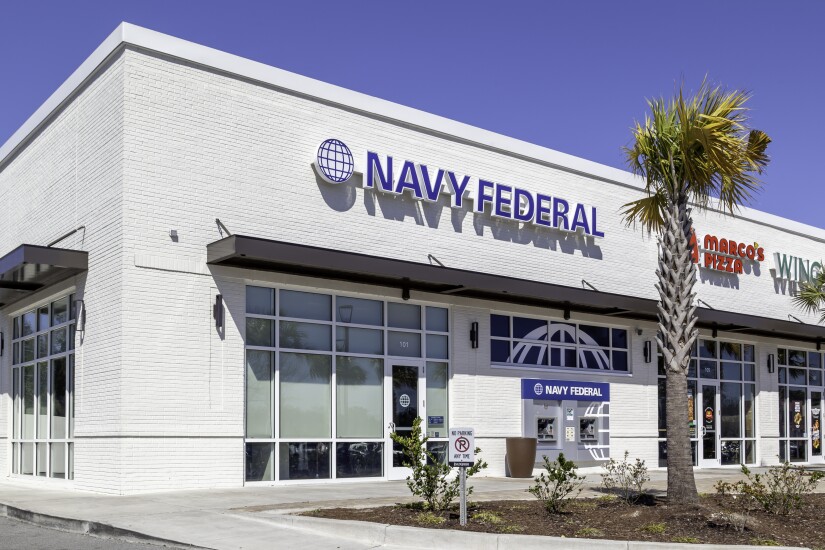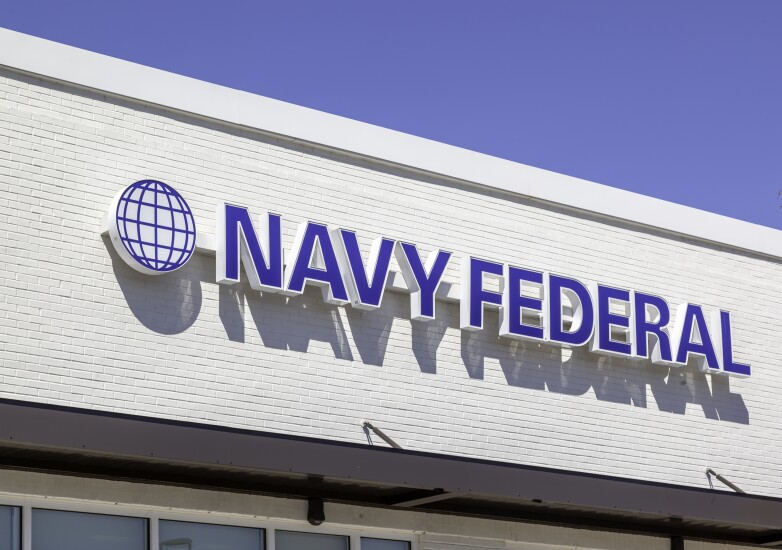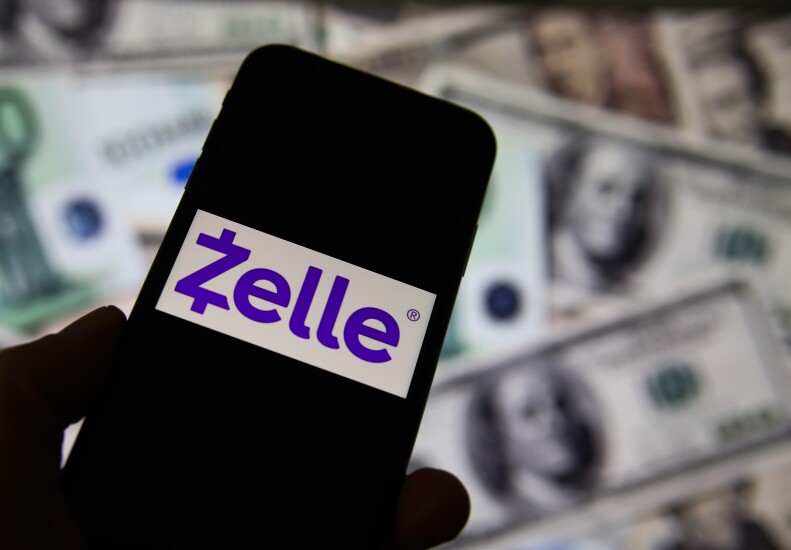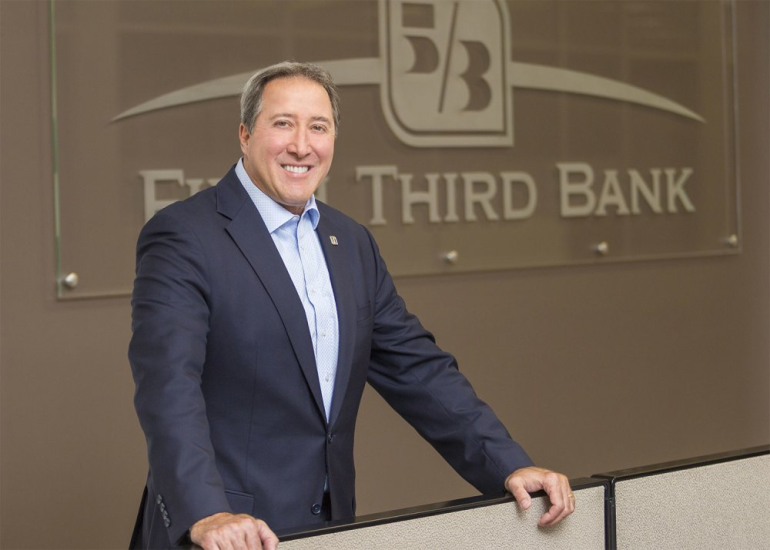In this year's roundup of top banking news for 2023: Navy Federal Credit Union joins The Clearing House's real-time payments network amid ongoing military contract woes, major banks across the U.S. announce staff cuts, regulators shutter Signature Bank and more.

Navy Federal is now on the RTP network. Will other credit unions follow?
Out of the nation's nearly 5,000 credit unions, only 111 are now on the RTP network, said Elena Whisler, chief client officer for The Clearing House. The organization's bank ownership could be a stumbling block, as it was years ago for
But the presence of the $168 billion-asset Navy Federal, the largest credit union in the world, will help grow the network's volume and reach, Whisler said.
"Navy Federal joining the network highlights the importance that instant payments are playing in digital banking strategies," she said. "And it may put it over the tipping point — if we haven't done so already — when it comes to (credit union) interest in instant payments."

Navy Federal encounters rough seas after winning military contract
The Department of Defense has awarded
The program was established after World War II to provide active duty military members with retail, financial and cash services. It provides access to foreign currency, local ATMs, bill pay, savings and checking accounts and other products.
"We're very proud to have been awarded this contract. Supporting active-duty personnel and their families, wherever they are stationed, is at the core of Navy Federal's mission," Mary McDuffie, president and CEO of Navy Federal, said in a press release.

CBDC projects pick up the pace as 2023 kicks off
About a dozen CBDCs have launched, according to a tracker from the
"A well-designed CBDC can help provide a real-time view of risks and currency outflows to help implement specific and targeted measures to prevent financial contagions from spreading further in the event of a crisis," said Gilbert Verdian, founder and CEO of Quant, a London-based blockchain firm.

Banking on sisterhood: A Black sorority launches a credit union
The sorority itself was founded in January 1908 on the campus of Howard University, a historically Black institution in Washington D.C. Today, AKA has more than 335,000 African American female initiates in 12 counties and boasts notable alumni such as Maya Angelou, Katherine Goble Johnson and Vice President Kamala Harris.
Emma Hayes, who has been an active member of AKA for more than 25 years and is currently chief learning and experience officer for the $51 billion-asset State Employees' Credit Union in Raleigh, North Carolina, explained how the sorority was inspired by its lineage to launch its own financial institution.
"There's a long history of disparity in Black communities [and] this is a way for the sorority to empower people who've been disadvantaged and give them confidence in their financial institution, knowing that it is owned and operated by people who share a common bond, who share common interests and who have a common history," Hayes said. "The credit union philosophy of 'people helping people' is very kindred to the Alpha Kappa Alpha principle of helping each other."

Washington state will provide mortgage assistance as remedy for historical discrimination
The law levies a $100 fee on certain documents recorded by county governments to fund a program that will provide qualified applicants with loans to cover down payments and closing costs associated with buying a home.
The program will cover first-time homebuyers who are Black, indigenous, people of color or from other historically marginalized communities.
Applicants must be state residents or the descendants of residents who were excluded from homeownership "by a racially restrictive real estate covenant," according to the law's text.

FDIC order against Cross River Bank is a warning on fintech alliances
Cross River is a banking-as-a-service provider that makes loans through fintech lenders such as Affirm, Upstart, Rocket Loans and the former Kabbage.
The bank did not admit or deny any charges of unsafe or unsound banking practices or violations of law or regulation.
"The consent order signed by Cross River is narrow and is limited to correcting Cross River's fair lending program in the state that existed in early 2021," a bank spokeswoman said on Friday. "We are dedicated to partnering with the fintech community as part of our mission to reach long underserved communities and give all Americans access to the modern financial services they need and deserve. We have always and will continue to serve as a model for transparent, compliant, fair and responsible lending."

Zelle outage at JPMorgan Chase is red flag for banks
It was the second Zelle glitch in six months that involved a bank tied to
Glitches
"Instant is great when it works. But when it's broken, we find out about it right away," said Peter Tapling, a payments consultant and former Early Warning executive. "That intersection of brand-new modern systems, and clunky old bank systems is going to become more evident."

BMO, Wells Fargo and USAA are latest banks to report layoffs
The job cuts come as banking executives express
Between April 2021 and July 2023, total employment in credit intermediation jobs, which include loan officers and tellers at depository institutions, fell by 45,000 to 2.67 million, according to census data.

Regulators shut Signature Bank, pick industry veteran to run bridge bank
The shutdown of Signature by its state-chartering authority marks the second U.S. bank in three days to be closed by regulators, following the
The New York State Department of Financial Services took possession of Signature "in order to protect depositors," the department said in a press release the evening of March 12. The FDIC, which was appointed receiver of the bank, said that it has transferred all of Signature's deposits and "substantially all" of its assets to Signature Bridge Bank, which will be operated by the FDIC as a full-service bank while the regulator attempts to "market the institution" to potential buyers.

How interest rate risk sneaked up on dozens of community banks
Dozens of other banks — most of them quite small — are deeply underwater on their bond investments and could hit trouble if they were unexpectedly forced to liquidate the investments. That's according to an American Banker analysis of regulatory filings by the country's more than 4,700 banks.
Many experts say there is very little risk that those unrealized losses could ever turn into a problem, given the many options available to banks and regulators' focus on avoiding that type of scenario. The losses, a result of banks' bonds losing their value when interest rates rose, remain "unrealized" and only theoretical. They would only cause trouble if a bank needed cash and was forced to sell the bonds early for less than it bought them, thus making the losses real.
Several bankers contacted for this story pushed back on any concern that they'd ever need to get rid of the bonds to raise cash. Those bankers said they have plenty of cash available, and that if they ever need more, they could easily borrow from the Federal Reserve and elsewhere. The Fed launched a new program this month





